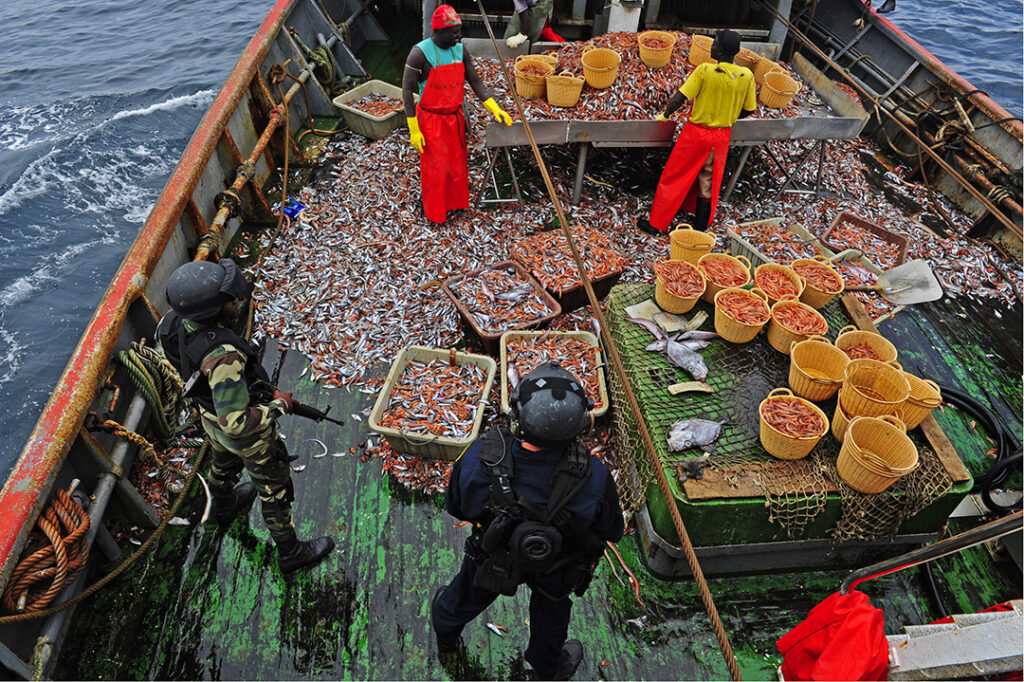ADF STAFF
Fisheries officials have long known that trawlers involved in illegal fishing turn off their automatic identification systems (AIS) to cloak their activities.
Researchers using Global Fishing Watch data have specified for the first time that West Africa is among the world’s hot spots for AIS disabling. The region is mostly targeted by China’s distant-water fishing fleet, the world’s largest.
The study, which tracked AIS disabling between 2017 and 2019, showed that up to 6% of global fishing is hidden due to the practice. West Africa accounted for the third-highest number of AIS-disabled hours tracked in the study, trailing only the northwest Pacific and the coast of Argentina. The practice is commonly known as “going dark.”
“This is the first time intentional AIS disabling has been quantified and mapped on a global scale,” the report’s author, Heather Welch, a spatial ecologist at University of California Santa Cruz, told The Guardian newspaper. “Prior to this work, we didn’t have an understanding of how big a problem disabling is, where it happens, who does it and why they do it.”
Illegal fishing costs the continent up to $11.49 billion annually and Africa’s fish stocks are now in steep decline, driving food insecurity. Illegal fishing is linked to other sea crimes, such as piracy, human trafficking and drug smuggling, and threatens the livelihoods of the roughly 5.2 million people who work in the continent’s small-scale fisheries.
West Africa, the world’s epicenter for illegal fishing, attracts 40% of the world’s illegal trawlers, according to a 2022 report by the Financial Transparency Coalition.
AIS receivers have been used since 2008 and are meant to support safe navigation and collision avoidance by automatically transferring information about a vessel to other ships. It increasingly has been used in fisheries enforcement.
Despite the consequences of illegal fishing, many West African nations do not require that fishing vessels use an AIS, Peter Hammarstedt, director of campaigns for Sea Shepherd Global, which helps several West African countries combat illegal fishing, told ADF in an email. Less than 20% of Chinese trawlers in the region use AIS, Hammarstedt added.
Much of the AIS disabling highlighted in the report occurred near a nation’s exclusive economic zone and near marine protected areas.
“As West Africa suffers annual economic losses of up to $2.3 billion because of illegal fishing, including authorized incursions of industrial fleets into national waters, AIS disabling that reduces monitoring capabilities in this region is particularly alarming,” the report said.
Although disabling an AIS signal isn’t a crime in every region, Global Fishing Watch and other maritime security experts say it is often a good indication that a vessel is hiding its activities, including “saiko,” the illegal transshipment of fish at sea.
Saiko involves transferring a trawler’s catch to a large canoe capable of carrying about 450 times more fish than an artisanal fishing canoe. In 2017, saiko took 100,000 tons of fish from Ghanaian waters alone, costing the country millions of dollars in revenue, according to the Environmental Justice Foundation.

